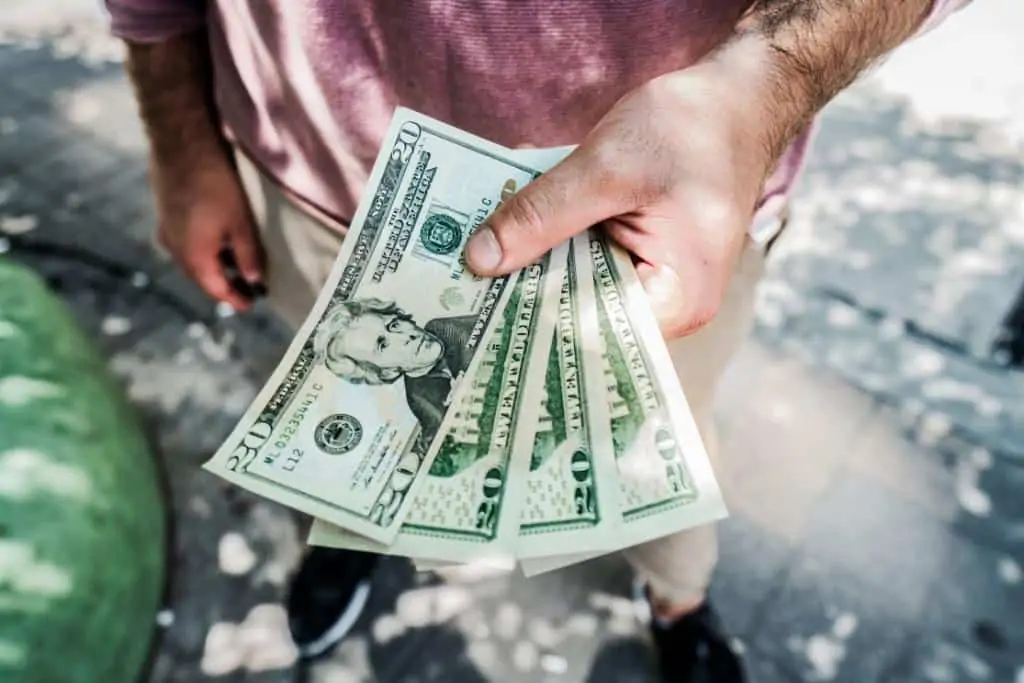What is a Money Order?
A money order is an instrument that allows one individual to deposit funds into your account at any bank by mailing them through the postal service. The original purpose was simply for sending large sums of money quickly as well as easily transferring small amounts between individuals. However, since then the uses have expanded beyond these two basic functions. Today’s money orders can be used just like regular checks — they will clear without problem. Money orders may also be used to make payments on things such as utilities bills, rent, insurance premiums, taxes, etc., because they do not require authorization from the recipient. And finally, some banks now offer their own money-order services, allowing customers to purchase money orders online and receive them directly deposited into their checking accounts.
Places to Buy Money Orders
Money order companies offer services that are similar to those offered by banks or other financial institutions. They may be able to provide you with more options than your bank does for getting cashier’s checks. You should check out all available choices before deciding where to buy your money order.
There are many different ways for you to buy your own money order online or over the phone. Some are more convenient than others; some charge higher fees than others. But all will give you an exact amount of cash that is guaranteed by the U.S. government.
1. Post Office
The most common way to purchase a money order from the United States Postal Service. It is a convenient service and it is very simple to use. In certain locations, you also may be able to purchase a money order at the post office counter, but there is a limit on how much money you can buy.
2. Western Union
You can purchase a money order at any of the Western Union branches nationwide. This includes their website as well as their “Agent” locations. These locations are basically businesses that sell money orders as part of their line of services like a check cashing store, or pharmacy would on the west side of town where you live. You can call Western Union’s 24-hour customer service line to find out which locations are still open or to help you locate the nearest business that sells money orders.
3. Local Banks
Local banks offer several services that make it convenient for you to purchase or cash your money order quickly and easily. They have locations all over your area and they can fill any of your banking needs to get money orders on a regular basis.
4. CVS
You can buy money orders at any CVS location. The good thing about this service is that you do not need to wait in line or wait for an employee to finish their other services. You can go into the store, buy your money order, fill out and sign the form and your done.
5. MoneyGram
One of the most convenient ways to send money abroad is through MoneyGram. You can purchase money orders at any of the U.S. MoneyGram locations and then send them through their U.S. Express service or through another service with a domestic remittance fee included in their fee schedule.
6. 7-Eleven
You can purchase money orders at 7-Eleven stores all over the United States. You will have to fill out their money order form for this service. However, the 7-Eleven money order is a good option if you want to purchase a designated amount of currency in cash and then redeem those funds as cashier’s check or personal check.
7. Walmart
Wal-Mart is a popular place to buy money orders because they are easy and convenient. They do not require you to make an appointment, have to wait in line or fill out forms. All you need is identification and they will cash it just like that. The downside is that there are several locations all over the United States and usually only one person can be available at each location. You may need to visit a different location than the one you tried in order to get your money order cashed.
8. Kroger
You can buy money orders at any Kroger’s location. The good thing about this service is that it is easy, fast and convenient for you to get your money order cashed or funds deposited into a bank account at the time you choose.
9. Credit Union
In a credit union, you can buy a money order. You will need to have your credit union member number or some other unique identifier that identifies you as a member of their organization in order to get that service. Not every credit union will allow you to purchase money orders so make sure to contact them before going to the location for a money order purchase.
10. Meijer
You can buy money orders at any Meijer store. This is convenient for you since you do not need to make an appointment or wait in line only to find out that they do not have the proper forms for your situation. Just go into the store, fill out and sign the money order form and your done.
What Happens if I Lose my Money Order?
Money orders are generally considered safer than checks because they aren’t backed by deposit insurance. However, like all paper instruments, they can become lost or stolen. To prevent this from happening, always store your money order safely somewhere secure. Also, note that the Federal Deposit Insurance Corporation doesn’t cover money orders unless you specifically request coverage. Check the FDIC website for more info.
Can I Cancel my Money Order?
Unfortunately no. Money orders are non-refundable. If you decide not to accept a particular check after payment has been processed, then your bank may refund the amount paid minus a small transaction fee. For example, if you choose to decline $100 worth of merchandise at Walmart, your bank might return $98 plus a $2.50 fee. But remember, this only applies when the original purchase was completed on credit. When purchasing things over the internet or buying them with cash, then the bank does not offer refunds.
Is There Anything Else I Need to Know Before Filling Out a Money Order Form?
Yes. Always read everything carefully. In addition to signing the back of the form, you must sign the front stating that you agree to terms and conditions listed below:
1) A money order cannot be used to withdraw funds from an ATM. It can only be used for paying bills or making purchases.
2) Be careful about sending cash using a money order; many banks charge high fees for cashing the item.
3) Keep track of all payments you receive in case the person fails to honor other obligations.
4) If you want someone else to pick up your money order, make sure to give them both your mailing address and phone number.
5) If your money order comes with additional documents such as a letter explaining its purpose or a receipt showing its status, keep them safe until you eventually dispose of them.
6) Never put your Social Security Number anywhere near a money order.
7) Finally, don’t let anyone else handle your money order without your permission.







